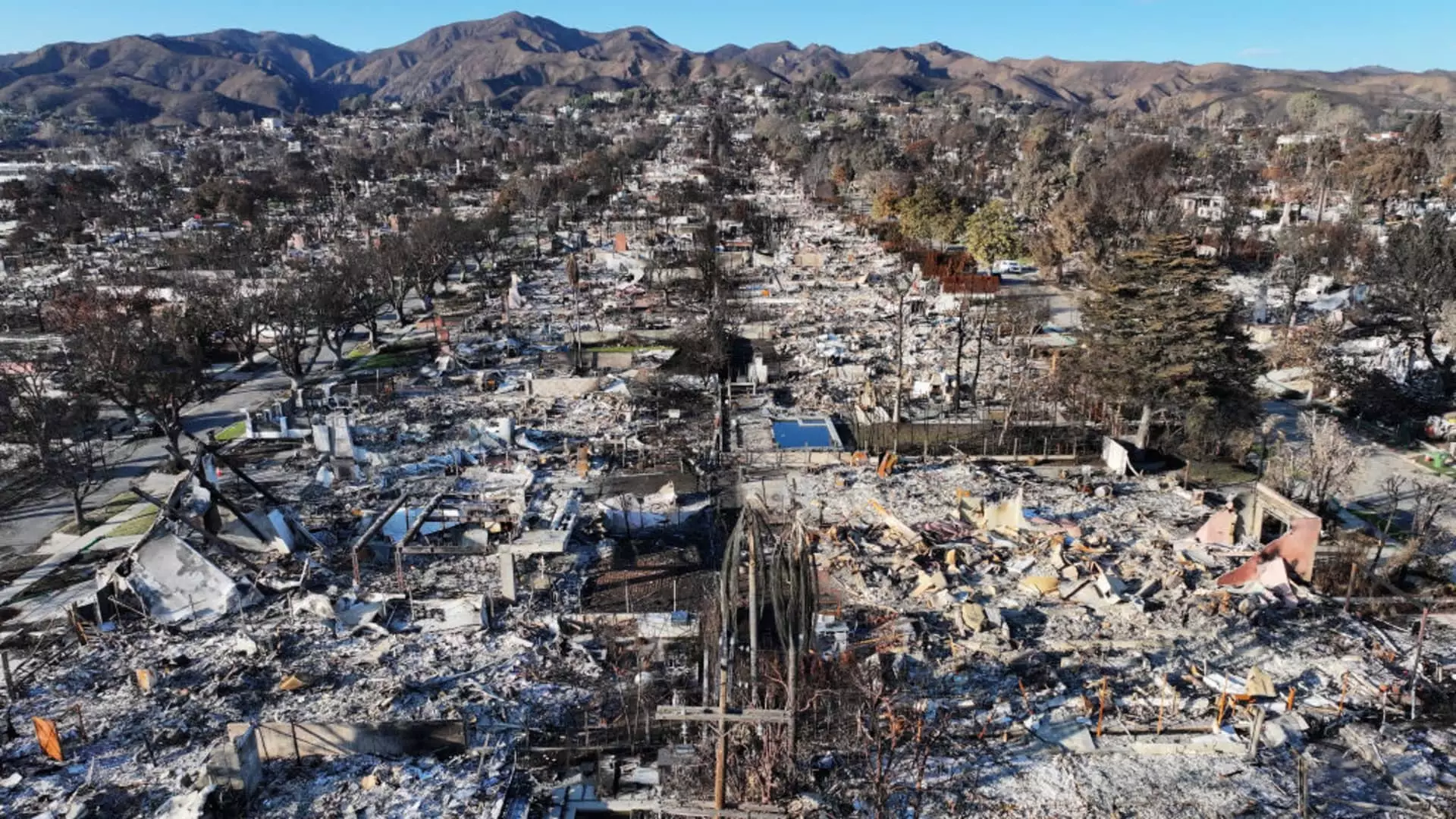As our planet grapples with the intensifying effects of climate change, the reinsurance industry has emerged as a critical barometer for understanding the financial ramifications of natural disasters. Recent revelations from Germany’s top reinsurers present a stark reality: the recent Los Angeles wildfires have inflicted a staggering $1.9 billion blow on the industry in just the first quarter of the year. This figure isn’t just a number; it signifies a turning point where traditional models of risk assessment are being rigorously questioned and challenged.
The world’s largest reinsurer, Munich Re, estimated its claims from the wildfires would reach approximately €1.1 billion. Meanwhile, Hannover Re, another giant in the sector, acknowledged losses exceeding €631 million. Together, these losses outline an undeniable narrative: reinsurance companies, traditionally viewed as financial safety nets, are feeling the overwhelming pressure from the unpredictable forces of nature. It’s a harsh awakening that poses questions about the sustainability and viability of existing risk models.
The Burden on Insurers and the Fragile Safety Net
Reinsurance firms like Munich Re and Hannover Re serve a vital function, providing policies to primary insurers that deal directly with customers—the everyday homeowners, businesses, and communities who suffer from devastating events. However, the mechanics of this safety net are far from perfect. Generally, reinsurance policies take effect only after a primary insurer has absorbed a damage burden upwards of €400 million. This threshold reinforces an unsettling reality: in times of growing environmental crises, the safety mechanisms designed to protect us can also become the very systems that exacerbate financial instability.
The latest wildfires have showcased this flaw brutally. Approximately 80% of Munich Re’s claims emanated from its property-casualty segment, revealing how catastrophes disproportionately impact specific sectors. With profits plunging in both the property-casualty and Global Specialty Insurance divisions—down 72% and 95% respectively—it’s clear that the historical strategies employed by these reinsurers may no longer be fitting in our changing world.
The Call for Adaptive Risk Management
In the wake of these massive losses, one cannot ignore CFO Christoph Jurecka’s remarks that the company’s earnings demonstrate “resilience” and “prudent management.” While such statements may reflect a company’s optimistic spin, they also beg a deeper examination. Are insurance companies indeed resilient, or are they simply bandaging a growing wound?
The detachment from real-world implications of losses hints at an industry that may not yet fully comprehend the risks it claims to manage. As the climate crisis accelerates, a stagnant approach could well lead to a future where reinsurance becomes a high-risk venture rather than a stable underpinning of society’s financial structure.
Market Performance and Investor Sentiment
The immediate market response to the news from both Munich Re and Hannover Re was predictably negative, with stocks sinking around 4%. Analysts from various financial institutions expressed mixed feelings about the reinsurers’ forecasts and performance. Though some highlighted favorable conditions that may boost profitability in the long run, such sentiments largely appear optimistic in the face of overwhelming data suggesting rising operational pressures.
RBC Europe analysts have articulated a firmly pessimistic outlook for Munich Re, signaling that losses were indeed less severe than originally indicated but still uncomfortably significant. Their criticism, alongside others from financial bodies like J.P. Morgan, underscores a prevailing sense of uncertainty. The raw potential for downgrades looms large, and investors find themselves navigating treacherous waters as they grapple with the uncertain regulatory and financial landscape that climate change is creating.
The Ethical Dimension of Risk Assessment
Beneath the fiscal figures lies an ethical quandary that warrants attention. Are we, as a society, adequately preparing for the inevitable increase in climate-related disasters? Reinsurers help define the parameters of risk, and with their decision-making influencing everything from local insurance premiums to government policies, they carry an enormous weight of responsibility. Yet, the focus remains heavily fixated on profit margins and loss projections.
In accepting the harsh realities of contemporary climate science, reinsurers must pivot away from reactive measures and adopt a proactive stance. This will require a collective reevaluation of their risk portfolios, innovative strategies to engage with evolving climate data, and a commitment to advocate for sustainable practices within the industries they insure. Ignoring this imperative may render effective risk management obsolete, with tragic consequences for millions who depend on these financial lifelines in times of need.

